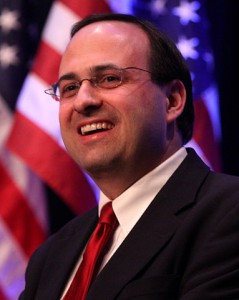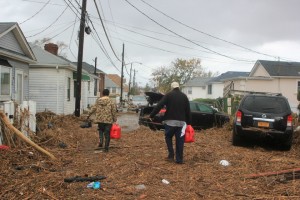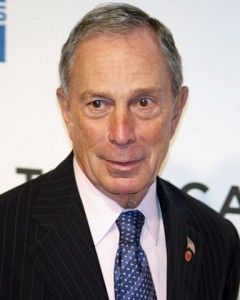
As we’ve discussed in previous posts, the main draw for LibertyFest was not personalities. Although Ron Paul, ironically, has become an icon for many in the libertarian movement within the United States, that movement is a cult of ideas more than anything. In fact, one of the recurring themes throughout the day was the repeated emphasis upon how this was a leaderless movement. In a speech that was one part performance art, one part Jonathan Edwards spiritual jeremiad, and wholly Kokesh, Adam Kokesh, of Adam vs. The Man, inveighed against the mentality which insists that there is a single person, or even a group of people, who are fit to “lead” other individuals.
Although made in typically histrionic fashion, his point about the logical inconsistency of fighting against the state by relinquishing your identity-or letting it be subsumed by someone else running for office under the liberty banner-resonated with the audience. Contra Dan Halloran, he declared that the Ron Paul campaign was the “compromise” made by sincere anarcho-capitalists. The fact that an elected official, however heterodox, is able to inspire people who believe voting to be an act of aggression is testament to the soundness of his ideas, almost all of which revolve around the simple principle of self-ownership.
This concept is never so explicit as during an encounter with an agent of the Transportation Security Administration, an horrific experience with which anyone who travels by air is intimately familiar. That’s why I was pleased to run into James Baab, of We Won’t Fly, while milling about the Libertyfest grounds. The campaign to eradicate an agency that is detested by large segments of the public, and whose abuses-unlike other government bodies-are in full view of the citizenry, has been led by individuals, not politicians, nor even political activists. To the contrary, the political heat generated by the TSA’s outrages-however evanescent-has been a direct result of individual travelers exposing the obscenely subservient nature of our relationship to the state which this arm of the government crystallizes for airline travelers every single day.
This sort of citizen-driven opposition is just one avenue libertarians can take when contemplating how best to disseminate their message to a broader swath of the American public, because you don’t have to be an agorist or minarchist in order to grasp the violative nature of a TSA agent groping an elderly woman who simply wants to see her grandchildren.
One speaker who managed to capture the essence of this diversity of action was Chris Lawless, otherwise known as Ron Paul’s giant, who delivered a fantastic speech exploring how each person can contribute something useful to the battle for a freer civilization. One of his contributions, in addition to his work on the Paul campaign, was moving to the state of New Hampshire as part of the Free State Project, a nationwide endeavor to create an enclave of libertarian thinking and autonomous, decentralized decision-making within the United States.
Lawless emphasized that his choices would not necessarily be the choice of others, and perhaps shouldn’t be, and that the multitude of talents and ambitions within this movement ensured that each person had a role to play in advancing the cause of liberty. Historians and economists are two vocations that are amply represented within libertarianism, which I was reminded of when I saw Austrian Economist Robert Murphy chatting with some of my friends.
Murphy is perhaps best known as the hungry challenger in the ever-elusive Robert Murphy-Paul Krugman debate, a contest which-despite its seeming win-win outcome-is just as likely to occur as the much-hyped Floyd Mayweather vs. Manny Pacquiao boxing match. Although Krugman has postulated some interesting theories about why he’s thus far rejected Robert Murphy’s generous offer, some libertarians have given more convincing explanations as to why Krugman is wise to dodge this confrontation.
Tom Woods of Liberty Classroom discussed the Krugman-Murphy debate during his speech, which served as the capstone to Libertyfest. He also touched upon a lot of pressing issues facing the liberty movement as it tries to build upon the momentum of the Paul campaign. Ron Paul’s presidential campaign was unique in the sense that it was not about winning primaries or accumulating power. Rather, it served as a platform to educate the electorate on the principles of self-governance and interacting with others by means other than the coercion of state agents. He correctly pointed out that the supporters of Ron Paul’s primary opponents, e.g. Herman Cain, Rick Santorum, Newt Gingrich, among others, had disappeared once their campaigns had run their course, whereas the Ron Paul revolution continues to thrive, despite the fact that he is not the Republican presidential nominee.
The truth is that the more the Paul campaign veered away from its principles-often at the behest of political strategists such as Jesse Benton-the less support it attracted among the Republican electorate. This dedication to core values was highlighted by an anecdote involving an appearance Tom Woods made on Dennis Prager’s nationally syndicated radio program earlier this year. After agreeing for much of their conversation, which focused primarily on domestic economic and fiscal matters, the discussion shifted to foreign policy; there’s the rub. The upshot is that Tom Woods is no longer welcome on Mr. Prager’s show.
Although he would, theoretically, be able to reach more people if he had elided the issue-or obscured his true beliefs regarding national security/foreign policy-it would have been at the expense of maintaining his integrity. The tradeoff, in his view, was not worth making this sacrifice. This was perhaps the most important part of his speech that day, because it illustrated what the liberty movement should keep in mind when it’s marketing itself to the broader public.
While some believe that downplaying the essential tenets of this philosophy will spread its popularity, that belief is mistaken. Tom Woods’s own experience during the 2012 Paul campaign-where he was exposed to different strands of libertarianism he had never heard of, and forged lasting friendships with people he didn’t know existed a year ago-demonstrates that liberty brings people together.







Recent Comments